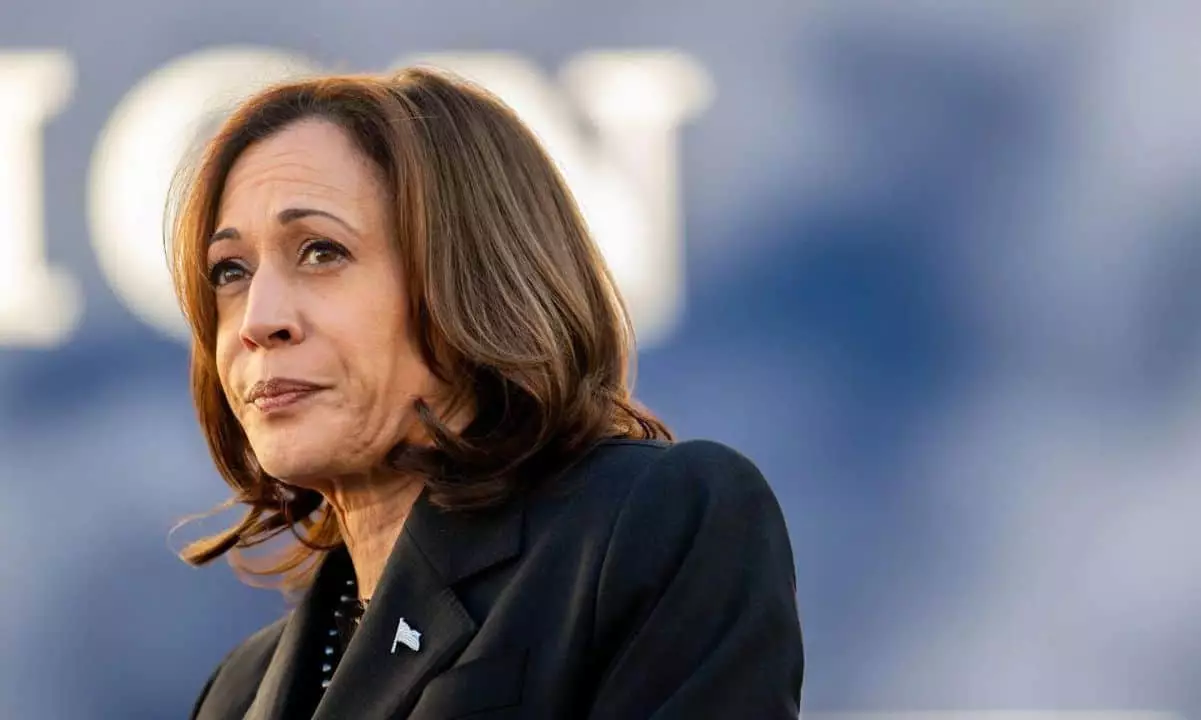In an environment increasingly shaped by technological advancements, the emergence of digital currencies has become a significant theme in contemporary political discourse. Following the recent developments concerning Kamala Harris’s classification by Stand With Crypto, a digital asset advocacy group linked to Coinbase, it is evident that the intersection of politics and cryptocurrency is fraught with complexity. Originally granting Harris a “B” grade on its crypto-friendly ranking due to her remarks at a New York fundraiser, the organization’s swift recalibration following community backlash illustrates the challenges in quantifying political support for such a dynamic and multifaceted industry.
Stand With Crypto initially deemed Harris as a “Supports Crypto” candidate based on her comments about fostering innovative technologies, which included digital assets. This categorization appeared optimistic, even celebratory, particularly in a political climate where cryptocurrencies often face skepticism and regulatory hurdles. However, critics swiftly emerged, asserting that a single relatively vague comment on digital assets does not substantiate her qualifications as a genuine supporter of the crypto movement.
This disparity between Stand With Crypto’s initial assessment and the criticisms from various community members signals profound discontentment with the manner in which political allegiances are gauged regarding cryptocurrency. Prominent figures within the cryptocurrency sector, like Wayne Vaughan, openly questioned the appropriateness of Harris’s given rank, labeling her solitary reference to crypto as “neutral.” Such commentary underscores a prevailing sentiment among cryptocurrency advocates who value substantive support over rhetorical gestures.
Debating the Influence of Political Figures
Adding another layer to the discussion, Michael Cairo, a lawyer at a specialized firm for the crypto sector, expressed concern that Stand With Crypto may be misrepresenting Harris’s stance. This tension lays bare a fundamental disagreement within the community regarding how to interpret political discourse on digital currencies. Many argue that the cryptocurrency sector deserves unequivocal endorsements from political leaders, particularly those likely to gain significant office time, as it could drastically influence regulatory frameworks in favor of the industry’s growth.
Moreover, the comparison between Harris and former President Donald Trump, who received an “A” rating due to a myriad of vocal commitments to cryptocurrency, accentuates the inconsistencies in grading interpretations. By observing Trump’s active engagement in the crypto domain, it becomes apparent that the burden of proof rests heavily on candidates like Harris, who lack a solid track record or repeated statements supporting cryptocurrency initiatives.
Upon receiving substantial feedback from the community, Stand With Crypto was compelled to revise their evaluation of Harris. Acknowledging that the scoring system needed recalibration, the group’s executive director, Logan Dobson, announced a shift in their approach to assessing politicians. Going forward, candidates will be marked accordingly, emphasizing the necessity for deeper, more comprehensive statements before a favorable rating can be granted. This change points toward an evolving understanding of how political figures can or should express their views on the burgeoning cryptocurrency landscape.
The reclassification of Harris’s profile now includes a note indicating that she has “not enough information” regarding her stance on digital assets, signaling a critical introspection on behalf of Stand With Crypto. This softening of ratings suggests a recognition of the complexity and, indeed, the ambiguity surrounding political rhetoric in the digital asset space.
The dialogue generated by the re-evaluation of Harris by Stand With Crypto exemplifies a crucial moment in the broader political sphere, indicating both the growing influence of cryptocurrency and the challenges faced by advocates in aligning political support with tangible actions. As the landscape shifts, navigating the commitments of those in power will become increasingly vital for cryptocurrency enthusiasts and firms alike, who seek to understand where they can genuinely find allies.
The need for robust, clear, and affirmative engagements on digital asset policies from political leaders is clear. As seen through this incident, the crypto community’s demands will likely intensify, pushing for not just supportive statements but actionable commitment to create a conducive environment for cryptocurrency’s growth. The implications of this discourse will undoubtedly resonate beyond the individual cases of political candidates, shaping the future of how cryptocurrencies are integrated within U.S. economic policy.
















Leave a Reply